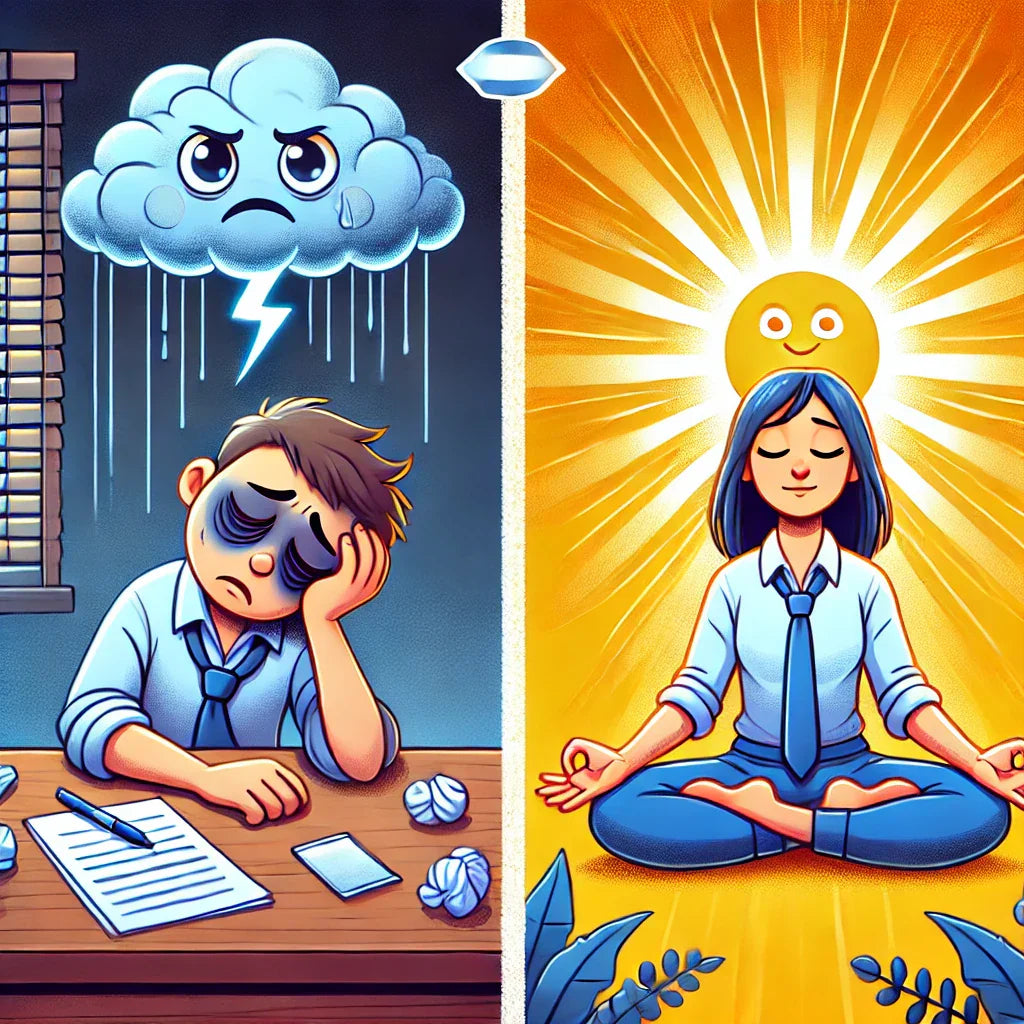The Link Between Stress & Fatigue: How to Break the Cycle

Do you often feel drained, exhausted, or mentally foggy even after a full night’s sleep? You may be trapped in the cycle of stress and fatigue. While feeling tired occasionally is normal, persistent fatigue could be a sign that chronic stress is depleting your body’s energy.
By the end, you’ll have actionable strategies to boost your energy and improve overall well-being.
What is Stress?
Stress is your body’s natural response to challenges or perceived threats. It activates the “fight or flight” system, releasing hormones like cortisol and adrenaline that help you react quickly in dangerous situations.
While short-term stress can enhance focus and performance, chronic stress keeps your body in a constant state of alertness, leading to fatigue, anxiety, and health issues.
How Stress Affects Your Energy Levels
When stress becomes prolonged, your body remains in a heightened state, draining essential nutrients and disrupting key functions like sleep, digestion, and immunity. This often results in:
- Feeling sluggish and exhausted
- Difficulty concentrating (brain fog)
- Lack of motivation despite resting
Without proper stress management, chronic fatigue sets in, making it harder to recover.
Stress vs Fatigue: What’s the Difference?
| Factor | Stress | Fatigue |
|---|---|---|
| Definition | The body's response to demands or pressure | Persistent exhaustion that doesn’t improve with rest |
| Symptoms | Anxiety, rapid heartbeat, headaches, muscle tension | Brain fog, muscle weakness, extreme tiredness |
| Triggers | Work, finances, relationships, major life events | Chronic stress, poor sleep, nutrient deficiencies |
| Effects on the Body | Increased cortisol levels, potential burnout | Low energy, weakened immunity, risk of depression |
While stress is a reaction to external pressures, fatigue is a long-term effect of unrelieved stress.
Fatigue Symptoms Caused by Stress
If you’re experiencing any of these symptoms, stress could be the root cause:
- Constant tiredness, even after sleep
- Difficulty focusing or mental fog
- Low motivation and mood swings
- Frequent headaches and muscle tension
- Increased illness due to a weakened immune system
- Digestive problems like bloating or indigestion
According to a study in The Journal of Psychosomatic Research, chronic stress disrupts the hypothalamic-pituitary-adrenal (HPA) axis, leading to adrenal fatigue and low energy levels.
How Stress Causes Fatigue
A study in The Journal of Clinical Endocrinology & Metabolism found that prolonged stress disrupts cortisol production, resulting in:
- Sleep disturbances (leading to exhaustion)
- Slow metabolism (causing sluggishness and weight gain)
- Lower immunity (increasing illness frequency)
Similarly, research in The American Journal of Lifestyle Medicine highlights that chronic stress impairs mitochondrial function, reducing energy production at a cellular level.
These findings confirm that stress doesn’t just impact your emotions—it physically depletes your body’s energy stores.
Breaking the Stress-Fatigue Cycle
The good news? You can reverse stress-induced fatigue with simple lifestyle changes. Here’s how:
1. Improve Your Sleep Quality
- Stick to a regular sleep schedule (7-9 hours per night).
- Avoid screens (blue light) at least one hour before bed.
- Practice relaxation techniques like deep breathing before bedtime.
2. Use Stress-Reducing Techniques
- Try mindfulness meditation to calm your mind.
- Use progressive muscle relaxation to release tension.
- Practice deep breathing exercises (like the 4-7-8 method) to lower cortisol.
3. Exercise Smartly
- Engage in light exercise like walking, yoga, or stretching.
- Avoid overtraining, which can worsen fatigue.
- Get outdoor exposure—natural light improves mood and energy.
4. Eat Nutrient-Dense Foods
- Prioritize whole foods, lean proteins, healthy fats, and complex carbs.
- Stay hydrated—dehydration worsens fatigue.
- Reduce caffeine, sugar, and processed foods that cause energy crashes.
5. Set Boundaries & Reduce Work Stress
- Say no to unnecessary commitments.
- Take regular breaks (use the Pomodoro technique for focus).
- Organize tasks with priority lists to reduce overwhelm.
6. Consider Stress-Reducing Supplements
- Magnesium – Helps with muscle relaxation and stress relief.
- B vitamins – Support energy production and the nervous system.
- Adaptogens (ashwagandha, Rhodiola) – Help regulate stress hormones.
7. Seek Support When Needed
- Talk to friends, family, or a therapist about your stressors.
- Join a support group or online community for stress management.
- Consult a healthcare provider if fatigue persists.
Conclusion
The connection between stress and fatigue is undeniable—chronic stress drains your energy, disrupts sleep, and weakens immunity.
By recognizing early symptoms and implementing stress-reducing strategies, you can break the cycle and restore your vitality.
Take control of stress before it controls you. Simple changes like better sleep, proper nutrition, and relaxation techniques can make a huge difference in your daily energy and long-term health.
If you’re feeling overwhelmed, seek professional help. Prioritizing stress management is the key to sustained energy, well-being, and a healthier life.





